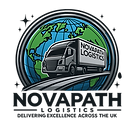Germany Retail Logistics: Enhancing Efficiency in a Dynamic Retail Landscape
Germany’s retail logistics sector plays a crucial role in ensuring the seamless flow of goods from manufacturers and suppliers to retail shelves and, increasingly, directly to consumers’ doorsteps. As one of Europe’s largest and most sophisticated retail markets, Germany demands high standards of speed, reliability, and sustainability from its logistics networks.
Driving Forces Behind Germany’s Retail Logistics
Modern retail logistics in Germany is shaped by evolving consumer expectations, technological advancements, and the growing importance of e-commerce. With German consumers increasingly shopping online, logistics providers must handle not only large volumes but also complex last-mile deliveries that require precision and flexibility. Retailers rely on integrated supply chains that can quickly adapt to changes in demand, seasonal peaks, and promotional cycles.
Retail logistics operations in Germany benefit from a well-developed infrastructure, including extensive road, rail, and port networks. Major logistics hubs such as Hamburg, Frankfurt, and Munich enable efficient national and international distribution. Many retailers are also investing in automation and digitalization to optimize warehouse management, order processing, and inventory tracking.
Sustainability and Innovation at the Forefront
Sustainability is a defining trend in Germany’s retail logistics. Retailers and logistics companies alike are adopting greener practices, such as electric delivery vehicles, route optimization to reduce emissions, and eco-friendly packaging solutions. Regulatory frameworks and consumer awareness further encourage the shift toward carbon-neutral supply chains.
Innovative solutions like smart warehouses, robotics, and data-driven logistics management are becoming standard. Technologies such as real-time tracking, predictive analytics, and automated sorting systems help retailers meet the dual goals of operational efficiency and customer satisfaction.
Challenges and Future Outlook
Despite its strengths, the sector faces challenges such as rising labor costs, urban congestion, and the need to continually upgrade digital infrastructure. The growth of same-day and next-day delivery expectations adds pressure on logistics providers to balance speed with cost-effectiveness and sustainability.
Looking ahead, Germany’s retail logistics is poised to evolve further through collaborative supply chains, stronger integration of AI and IoT, and the development of urban logistics hubs to streamline last-mile delivery in densely populated areas. As the retail landscape becomes more competitive and consumer-centric, the role of agile and innovative logistics will only become more vital.

